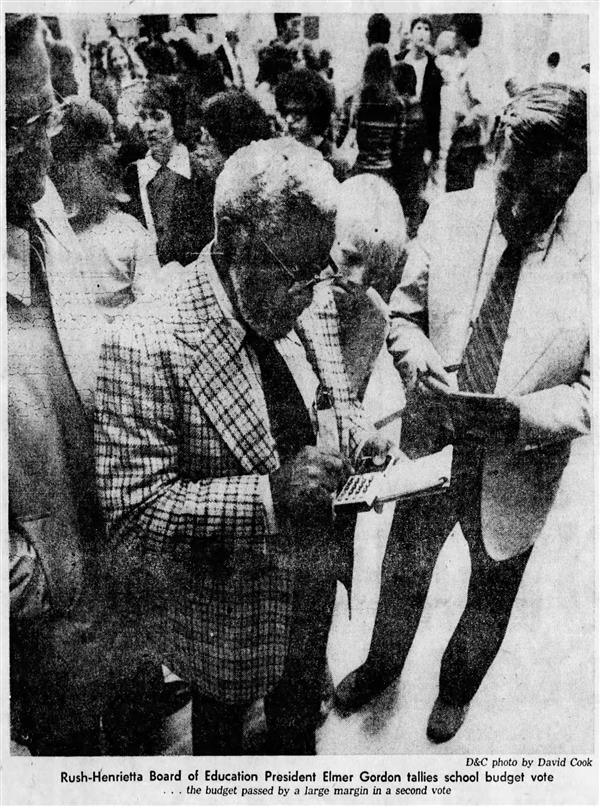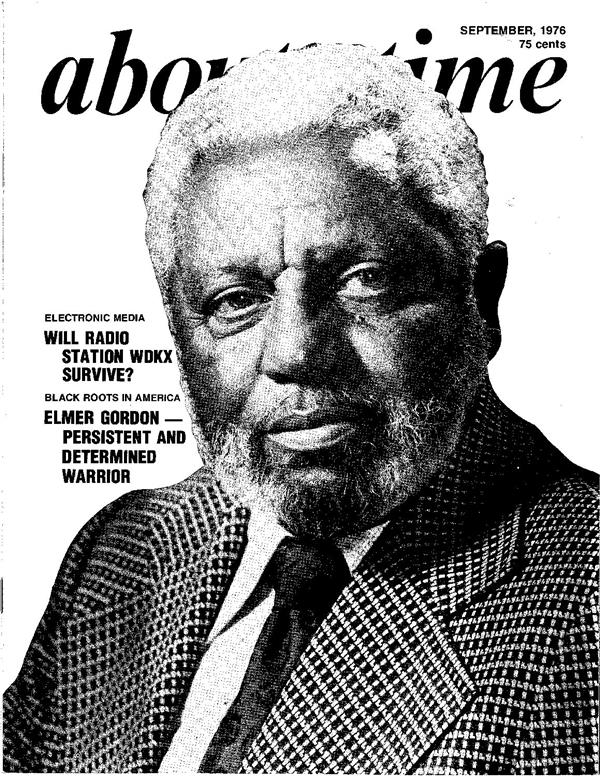- Home
- District Information
- District History
- 75th Anniversary
District Information
Page Navigation
-
District Information
- BoardDocs
- District APPR Information
-
District History
-
75th Anniversary
-
Anniversary Posts 1-15
- 1: Monroe Academy: Henrietta’s First Famous School
- 2: First Schools: Uphill, Barefoot, Both Ways
- 3: 1938: Voters Reject Creation of Rush-Henrietta Central School District
- 4: Schoolhouse Records Give Glimpse of Life 100 Years Ago
- 5: 1946: Given Second Chance, Voters Embrace New District
- 6: A Different Time: When Rush Had More Kids Than Henrietta
- 7: Choosing a Mascot: Why We're Not the Royal Falcons
- 8: Meet the Board: Rush-Henrietta’s Original Fab Five
- 9: Late 1940s: The Beginning of a Population Explosion
- 10: Breaking Ground: Rush-Henrietta’s First New School
- 11: 1952: R-H’s First New School a ‘Splendid Dream’
- 12: First Meeting of the New Board of Education
- 13: 1959 R-H Grad Still Gets on the Bus Every Day
- 14: Humble Beginnings: Two School Buses to Start
- 15: 1954: Sudden Need for a Second New School
-
Anniversary Posts 16-30
- 16: 1954-1955: Two Votes for a Second School
- 17: The Story of Gillette Elementary School
- 18: 1950s: Building a New School Each Year
- 19: 1957: Residents Press Pause, Reject Two New Schools
- 20: 1958: Fourth New School Helps District Keep Pace
- 21: 1950s: Curious Visitors Flock to New R-H School
- 22: Bill Farrell: ‘Architect of the R-H Sports Program’
- 23: 1961: Rush-Henrietta Gets a Junior High School
- 24: 1963: A New School Called Wedgewood
- 25: Elmer Gordon: A Rush-Henrietta Trailblazer
- 26: Remembering Jack Gaffney
- 27: Jack Gaffney's Incredible Connections to Our R-H Past
- 28: Remembering Wilma Jean Milhouse
- 29: 1964: West Henrietta Gets Its First New School
- 30: 1965: Fyle Elementary Named to Honor Respected Teacher
-
Anniversary Posts 31-45
- 31: R-H Family History Revealed in Historic Records
- 32: Dr. John W. Parker: Devoted to District’s Early Success
- 33: 1966: Amidst Housing Boom, R-H Opens Sherman Elementary
- 34: 1968: Rush-Henrietta Opens Its First High School
- 35: Richard TenHaken: Superintendent Who Looked Controversy in the Eye
- 36: 1970: Vollmer Becomes R-H’s Last New School
- 37: The Dome Arena: R-H and Other Legends
- 38: The Lion in the Room - Senior High School Pride
- 39: Artists in Residence
- 40: Providing an Even Start
- 41: Paul McKee: Humility Meets Great Success
- 42: Raymond Delaney Had ‘Unshakeable Belief’ in Public Education
- 43: Roger Eckers Strikes Up the Band
- 44: 1982: R-H Denies West Brighton Request to Secede
- 45: George DesMarteau: One - Make That Two - of a Kind
-
Anniversary Posts 46-60
- 46: Recognizing 75 Years of Music Excellence
- 47: Senior High School Mural Depicts 'Community of School'
- 48: 2006: Rush-Henrietta Alumni Council Established
- 49: A Bird's-Eye View of 1951
- 50: 1945: Preparing for the First Day of School
- 51: R-H is Where ‘The Rock’ Calls Home
- 52: 1974: Rush-Henrietta Takes to the Airwaves
- 53: Glory Years of WRHR: A Student’s Perspective
- 54: 1969: R-H a Trailblazer in Embracing Student Voice
- 55: 1975: Rush-Henrietta’s High School Reaches Capacity
- 56: 1975 to 1986: A Decade of Dual High Schools
- 57: 1987: New High School Name Helps Community Heal
- 58: How We Became the Royal Comets
- 59: Extracurricular Highlights
- 60: Spotlight on Bob Sagan, Act I
- 61: Spotlight on Bob Sagan, Act II
- 62: 1991: R-H Hires First New Superintendent in 20 Years
- 63: Werner Kleemann: More Than a Sports Legend
- 64: 2000: R-H Loses ‘Wonderful Mentor’
- 65: 2000: R-H Legend Returns to Stabilize High School
- 66: A Surprise Boost for Student Athletes and Musicians
- 67: Adventures of Ping: Restoring a One-of-a-Kind Painting
- 68: Dr. Ken Graham: Two Decades of Strong Leadership
- 69: R-H’s History of Putting Safety First
- 70: Girls Basketball Team Becomes Stuff of Legends
-
Anniversary Posts 1-15
- Did You Know?
- Distinguished Alumni
- First Administrators
- Norm Miller: Portrait of a Rush-Henrietta Life Well Lived
- School Namesakes
- Superintendents
- Who Was Elmer Gordon?
-
75th Anniversary
- District Map
- District Mission, Vision, and Values
- District Overview
- District Policies
- District Priorities
- District Progress Update
- Job Opportunities
- Program and Service Reviews
- Staff Directory
- Street/School Directory
- Title I
- Town Resources
- COVID-19 Reopening Summary
Elmer Gordon: A Rush-Henrietta Trailblazer
-
As Rush-Henrietta celebrates 75 years, Rush-Henrietta reflects on the many contributions of a local legend named Elmer Gordon.
Elmer combined a career as a prominent medical investigator with incredible civic leadership. Outspoken, blunt, and direct, he developed a national reputation as an expert in poisons and their detection as a forensic toxicologist with the Monroe County Medical Examiner’s Office.
Believing that each citizen had a responsibility to the community, Elmer was a true role model. With four children attending Rush-Henrietta schools, he was elected to the Board of Education in 1970. As its president from 1976 to 1978, Elmer brought a no-nonsense approach to board business. A staunch advocate of children and the taxpayer, he believed in providing students with a solid foundation in reading, writing, and arithmetic. At the same time, he called on educators to increase efforts to prepare students for jobs as well as college.
“Elmer Gordon was a true leader,” says Rick Page, a physical education teacher and coach in the 1970s. “He would advocate for special education, at the same time he was advocating for sports, while he was advocating for transportation. He was just incredible.”
Elmer took a special interest in school sports, concerts, and plays. On Saturday afternoons, he often could be found behind Rush-Henrietta Senior High School at the stadium that now bears his name. With characteristic humor, Elmer frequently remarked that, judging from the splinters he brought home, the seating could stand to be refurbished. We know he would appreciate the stadium we have today.
In 1979, Elmer was elected president of the Monroe County Schools Boards Association. He was the first Black person to hold that office. In that role, he called on association members to become more active in legislative issues, reminding them of the growing influence of the state and federal governments on local education. “He didn’t make a big point of it, but he let you know he was proud,” Jann Packard, then executive director of the Monroe County School Boards Association, told the Democrat and Chronicle upon Gordon’s death in 1979.
Born and raised in Virginia, Elmer left college during the Great Depression to join the Civilian Conservation Corps. When he returned to school, he supported himself by working as a pipefitter in the Navy Yards of Norfolk, Va.
When World War II began, Elmer joined the U.S. Army Air Corps and was assigned to the 302nd Fighter Squadron, part of the famed all-Black pilot group at the Tuskegee Army Airfield. He flew missions over Europe, developing a fighting spirit that was to characterize his life. He was proud of his service with these historic pilots and remained in touch with them throughout his life.
After the war, Elmer completed college, 12 years after he began, earning a degree in chemistry from Virginia Union University. He served as an assistant toxicologist for the state of Virginia for 15 years before moving to Henrietta in 1964.
Elmer was a risk-taker, publicly and privately. He rebounded from three heart attacks, refusing to let up in his work or community activities. Elmer frequently was seen at sporting events, concerts, community meetings, at church, and in classrooms. He was heard, too. Elmer believed in saying what he thought. Just a day before he died, he was using the phone by his hospital bed to check on Board of Education activities.
Persistent to the end, Elmer Gordon carved a special niche in the Rush-Henrietta community, setting an unmatched example of public service and civic leadership. He will never be forgotten.
[Post 25] #75Posts75Years
Click the "i" in the upper left corner of the photos below for more information.
© Copyright 2022. All rights reserved.



